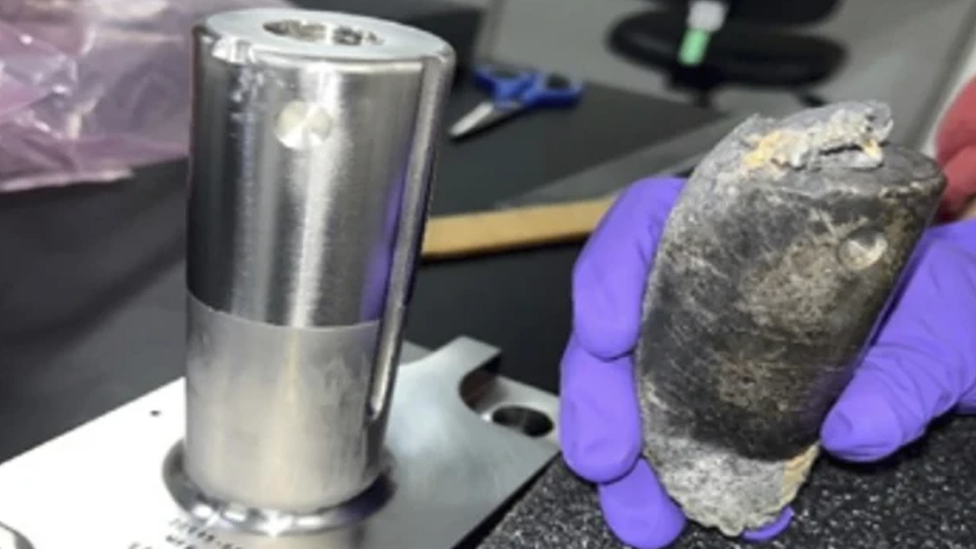Preventing space contamination rises up the agenda
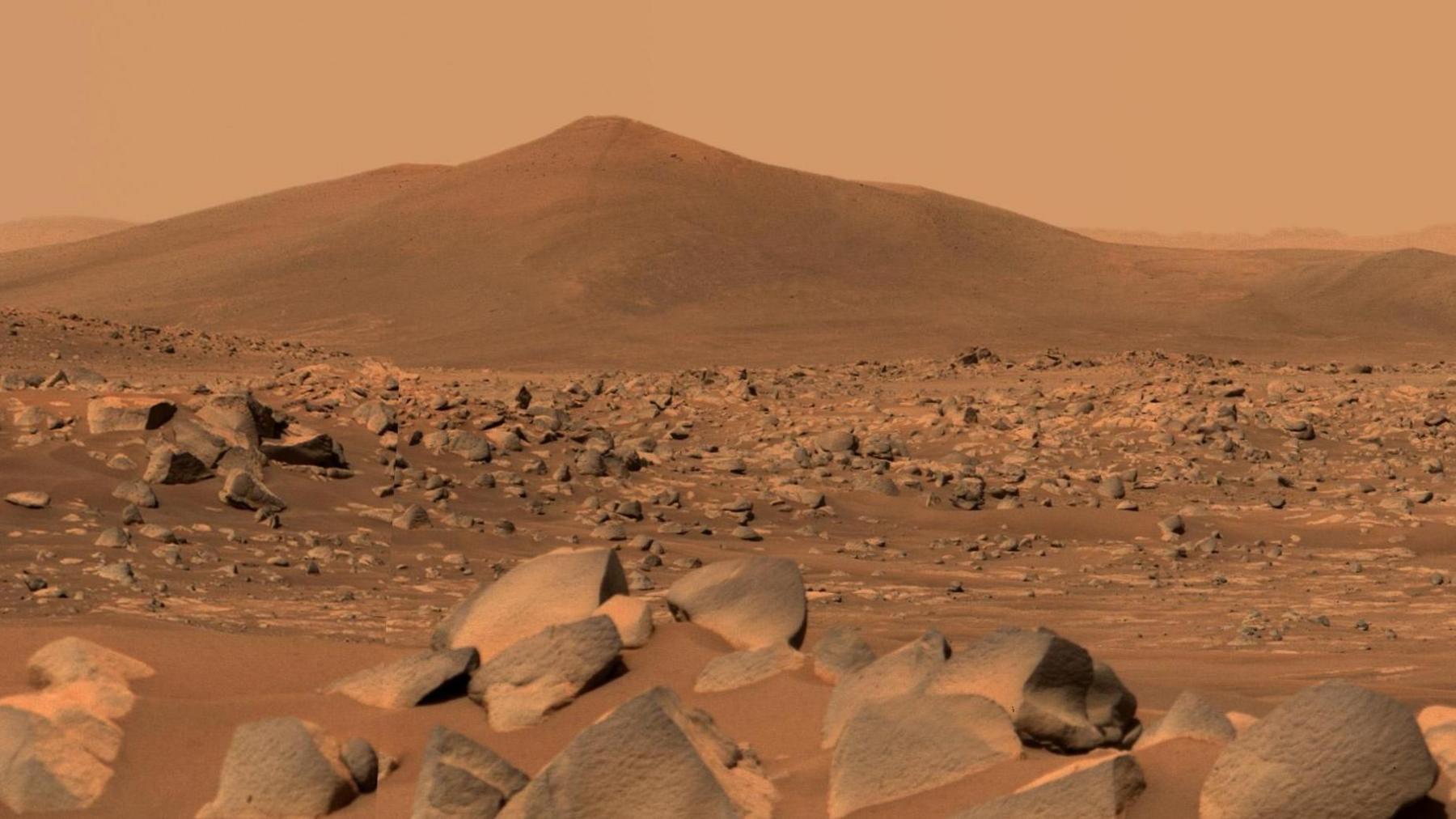
Microbes from Earth could complicate the search for Martian life
- Published
Hundreds of scientists from around the world are meeting in the UK this week to discuss the best ways of protecting our planet and other celestial bodies from contamination.
Representatives from Nasa, the European Space Agency and agencies from China, Japan and India, as well as private companies, will be sharing techniques on how to explore other worlds responsibly.
Organisers of the first International Planetary Protection Week, external - including Prof Karen Olsson-Francis, of Milton Keynes-based the Open University - say the issue is crucial given the recent increase in space exploration.
The event will also look at how to improve the ways we protect Earth from extraterrestrial life.
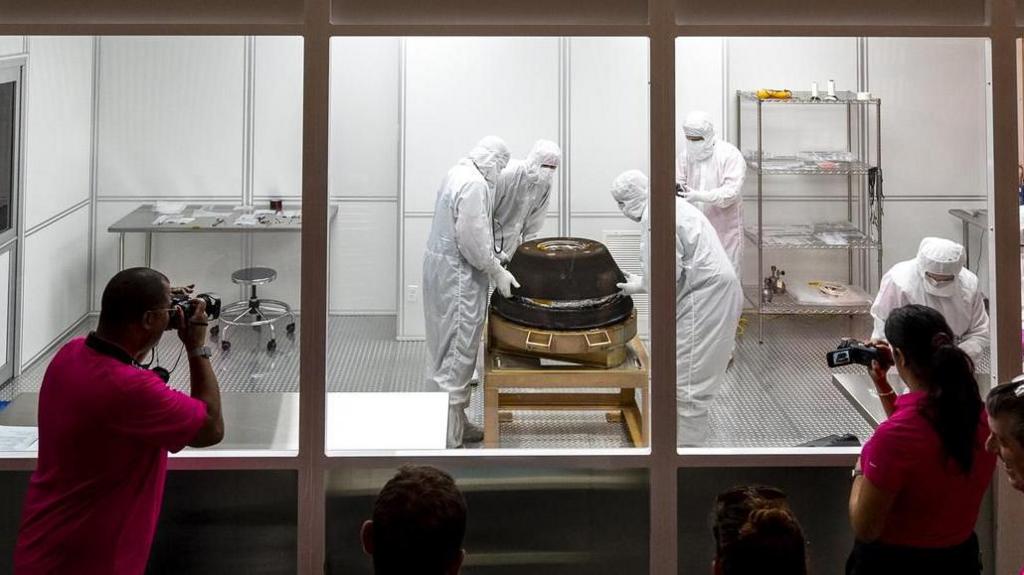
A Nasa team processing a sample taken from the asteroid Bennu in a cleanroom in Utah
Protecting our planet from extraterrestrial life (and vice versa) may sound like the plot of a Hollywood blockbuster but it is work that scientists have been doing for decades.
Sterilisation and carefully controlled clean rooms are used to build spacecraft to minimise the risk of forward contamination - where bacteria, viruses, fungi or spores on equipment could disrupt biospheres in other parts of the Solar System.
When samples are returned from space to Earth, similar methods are used to prevent backward contamination which could result in harmful consequences for our planet.
The more likely it is that the location of a mission could host indigenous life, the more stringent the planetary protection conditions.
For instance, landing and drilling into the Martian surface would involve significantly more measures than a mission to orbit the Sun.
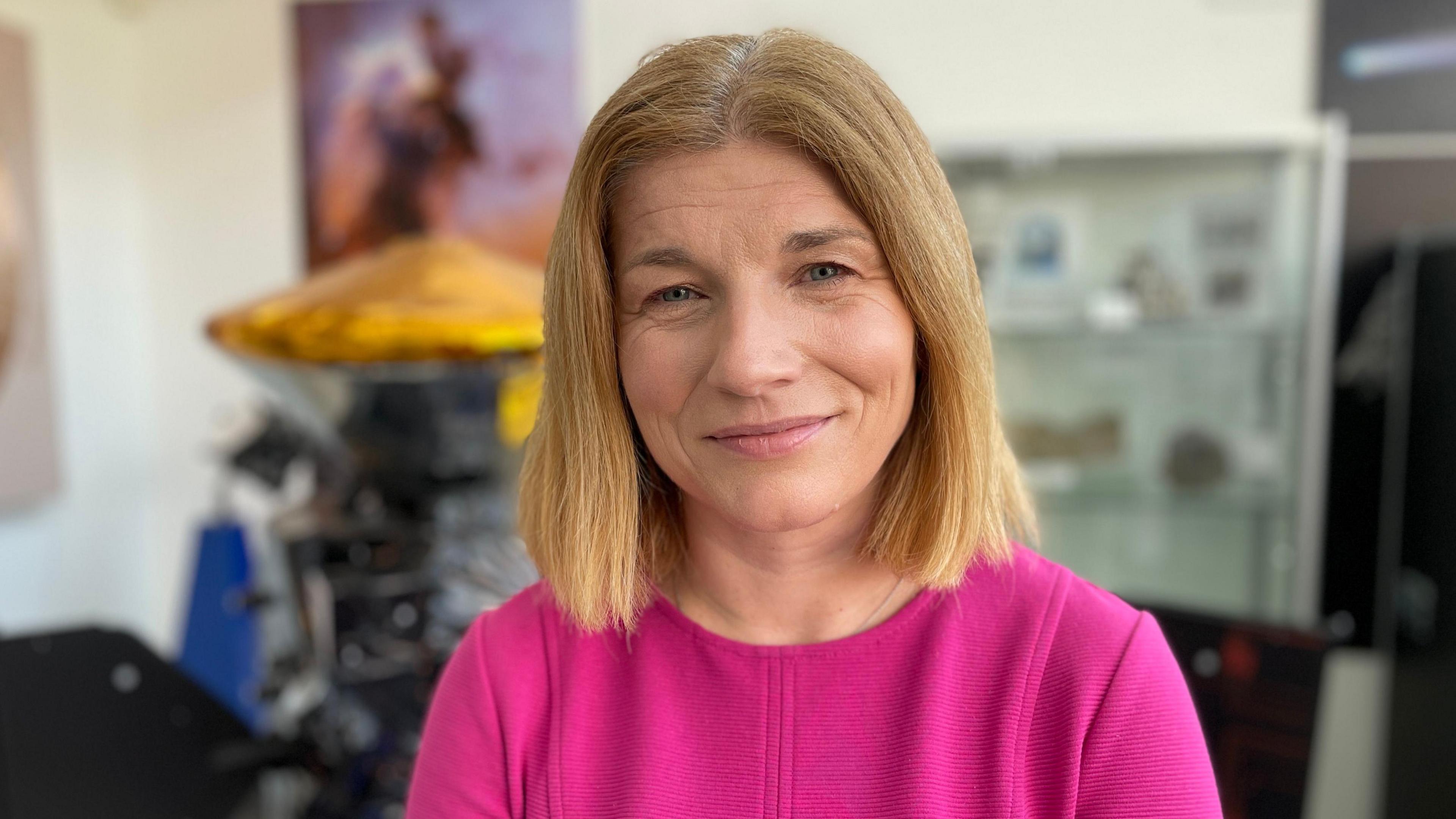
Prof Karen Olsson-Francis said all the space agencies and private companies invited to the event would be there
This week's event involves 17 space agencies, academics and representatives from the commercial space sector.
Organiser Prof Karen Olsson-Francis, of the Open University, said planetary protection was about the integrity of science.
"It ensures that we can address some of those most fundamental questions about how life evolved on Earth and if there's any potential extant or extinct life elsewhere in the Solar System," she said.
She added a lot could be learned from the conversations being had at the moment about the environmental issues faced on Earth.
"We need to act now to make sure we don't cause any detrimental damage in space. This is an environmental issue," she said.
Silvio Sinibaldi, the European Space Agency's planetary protection officer, who will be attending the event, said we were "living in a new era for space".
"Before, there were a few agencies running most of the missions, but now we have the private and commercial sector in the loop," he said.
"It's about adjusting the scenario to make sure we really promote sustainable space.
"There is no successful mission if we don't consider cross-contamination."
The International Planetary Protection Week is taking place from 22 to 26 April at the Royal Society in London and online.
Follow East of England news on Facebook, external, Instagram, external and X, external. Got a story? Email eastofenglandnews@bbc.co.uk, external or WhatsApp us on 0800 169 1830
- Published2 August 2017
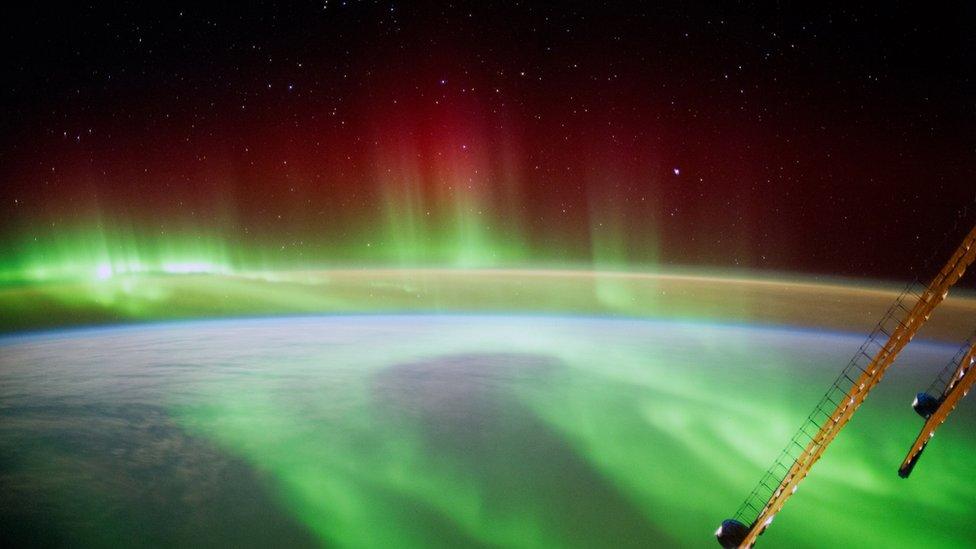
- Published24 November 2021
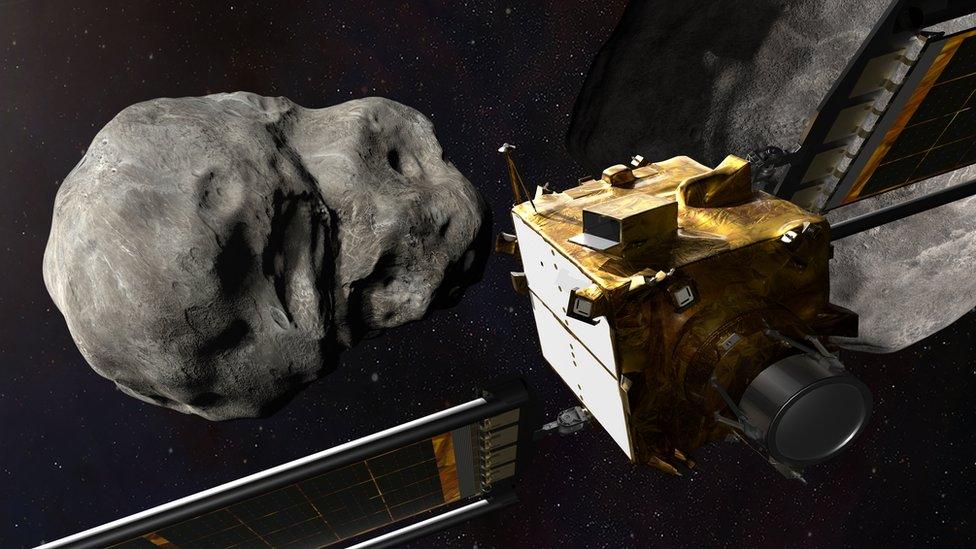
- Published16 April 2024
